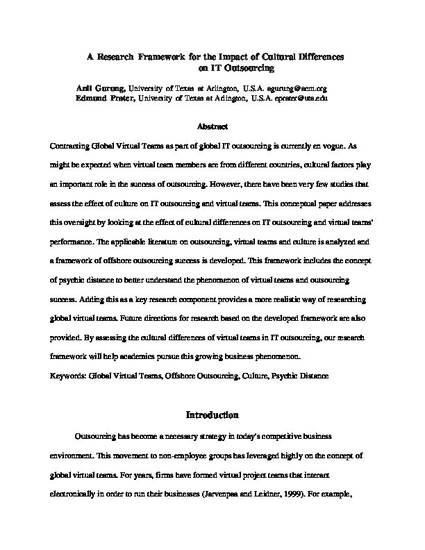
Contracting Global Virtual Teams as part of global IT outsourcing is currently en vogue. As might be expected when virtual team members are from different countries, cultural factors play an important role in the success of outsourcing. However, there have been very few studies that assess the effect of culture on IT outsourcing and virtual teams. This conceptual paper addresses this oversight by looking at the effect of cultural differences on IT outsourcing and virtual teams' performance. The applicable literature on outsourcing, virtual teams and culture is analyzed and a framework of offshore outsourcing success is developed. This framework includes the concept of psychic distance to better understand the phenomenon of virtual teams and outsourcing success. Adding this as a key research component provides a more realistic way of researching global virtual teams. Future directions for research based on the developed framework are also provided. By assessing the cultural differences of virtual teams in IT outsourcing, our research framework will help academics pursue this growing business phenomenon.

This is an Author’s Accepted Manuscript of an article published in Gurung, A., & Prater, E. (2006). A research framework for the impact of cultural differences on IT outsourcing. Journal of Global Information Technology Management, 9(1), 24-43. JOURNAL OF GLOBAL INFORMATION TECHNOLOGY MANAGEMENT, 2006, copyright Taylor & Francis, available online at: http://www.tandfonline.com/doi/abs/10.1080/1097198X.2006.10856413.
For more articles from Anil Gurung be sure to visit:
http://works.bepress.com/anilgrg/